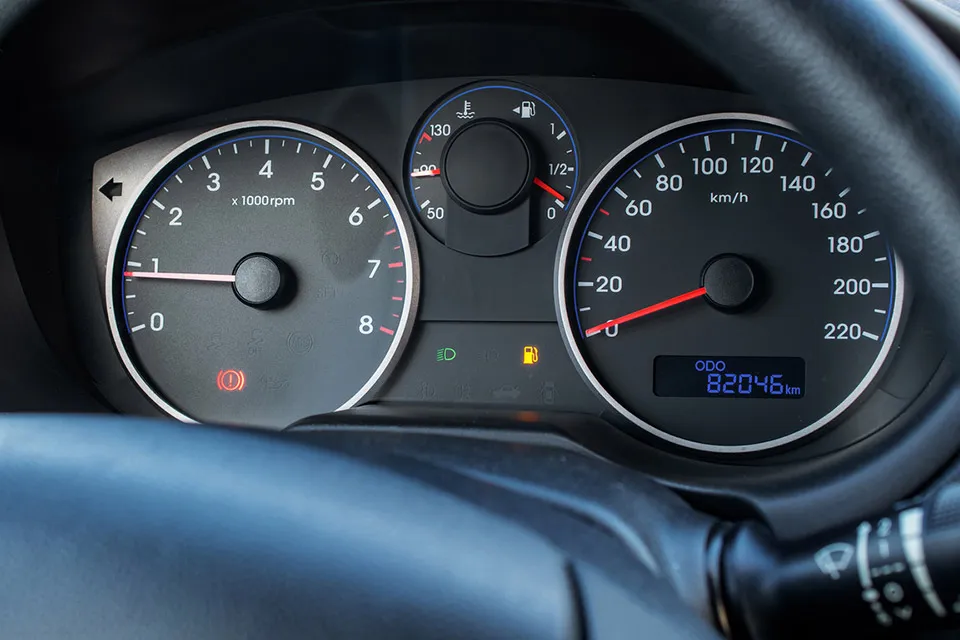Everything You Need to Know About Vehicle Mileage Tax

Are you tired of paying hefty vehicle taxes even when your car sits idle in the garage? Have you heard about the latest trend in taxation - Vehicle Mileage Tax (VMT)? The concept of VMT is simple: instead of charging a fixed tax rate, drivers will be taxed based on the number of miles they drive. Sounds intriguing, right? Yea, we know taxes are rarely fun, but we'll walk you through everything you need to know about VMT - its benefits, drawbacks, and potential impact on motorists. So, fasten your seatbelts and get ready for an enlightening ride!
What is Vehicle Mileage Tax?
Vehicle mileage tax, also called road use tax or fuel tax, is a levy imposed on vehicles based on the distance they travel. The tax is usually levied by states or localities as a way to fund the construction and maintenance of roads and bridges. Vehicle mileage taxes are typically imposed as a cents-per-mile charge, but some states levy the tax as a percentage of the vehicle's value.
The concept of a vehicle mileage tax has been around for centuries, with the first recorded instance occurring in England in 1647. In the United States, the first fuel tax was imposed in 1919 to fund the construction of roads and highways. Today, about half of all states have some form of a vehicle mileage tax.
The amount of vehicle mileage tax you pay depends on several factors, including the state or locality in which you live, the type of vehicle you drive, and how many miles you drive. The best way to avoid paying too much in vehicle mileage taxes is to track your driving habits and keep accurate records. This will help you calculate your expected tax liability so that you can budget accordingly.
Why Do You Need Vehicle Mileage Tax?
There are a few reasons why you might need to pay a vehicle mileage tax. The first reason is that it's simply a way for the government to collect revenue. This type of tax is called an excise tax, and it's based on how much you use your vehicle. The second reason is that this tax can help reduce congestion and pollution. By charging people based on how much they use their vehicles, it encourages them to drive less. This can lead to less traffic and fewer emissions. The third reason is to help the government cover the cost of road maintenance and new construction projects for our roadways and highways.
How Does the Vehicle Mileage Tax Work?
The vehicle mileage tax is a tax that is based on the number of miles that a vehicle is driven. The tax is levied on all vehicles that are registered in the state, and the amount of tax that is owed is based on the number of miles that the vehicle is driven. The tax is used to fund road maintenance and construction projects.
The tax is collected by the state Department of Motor Vehicles, and the funds are deposited into the state Highway Trust Fund. The tax can be paid either by mail or online. The amount of the tax owed can be calculated or estimated based on the type and age of the vehicle, as well as its current mileage. It is important to note that this tax is not a replacement for traditional gas taxes but instead is an additional fee that drivers must pay.
A Breakdown of States with A VMT
One article that was published in the Washington Post regarding vehicle mileage tax stated that Oregon and Utah have effective per-mile programs up and running. Another posting on the National Conference of State Legislatures (NCSL) website commented that 14 state and or regional pilot programs have received federal grants and funding to kickstart these programs.
The consensus is to expect a number of additional states to implement some type of road user charges (RUC). One blog post from the NCSL stated the following:
"State legislatures continue to debate RUC legislation. In 2019 and 2020, at least 19 states—Hawaii, Idaho, Illinois, Iowa, Kentucky, Maine, Maryland, Massachusetts, Michigan, Minnesota, Nevada, New Mexico, New York, Oregon, Texas, Utah, Vermont, Virginia and Washington—considered 34 pieces of legislation addressing RUC. Of those, at least seven states—Maine, Nevada, New Mexico, Oregon, Utah, Virginia and Washington—have enacted eight pieces of legislation. Five states—Illinois, Massachusetts, Michigan, New York and Vermont—currently have seven pending pieces of legislation, including carryover bills from 2019."
Who is Eligible for Vehicle Mileage Tax?

The vehicle mileage tax is a tax on the use of vehicles on public roads. The tax is based on the number of miles traveled by the vehicle. The tax is imposed on all vehicles that are registered in the state, including passenger cars, trucks, motorcycles, and trailers.
The tax is imposed on all vehicles that are operated on public roads in the state. The tax is not imposed on vehicles that are used solely for private purposes, such as farming or logging.
The tax rate varies depending on the type of vehicle, and the number of miles traveled. The minimum tax rate is $0.01 per mile for passenger cars and $0.02 per mile for trucks and other commercial vehicles.
How Can I Calculate My Vehicle Mileage Tax Payment?
To calculate your vehicle mileage tax payment, you will need to know your vehicle's total miles driven for the year and your state's tax rate. You can find your state's tax rate online or by contacting your state's Department of Revenue.
To calculate your total miles driven for the year, you will need to keep track of all the miles you drive in a logbook or on a GPS device. Once you have your total miles driven for the year, multiply that number by your state's tax rate. This will give you your estimated vehicle mileage tax payment for the year.
At GoodCar, we understand that while taxes can be rewarding at times, such as when we get a nice-sized tax return at the end of the year, not everyone enjoys them. With initiatives like the VMT expanding and growing, it is increasing the average cost to own and operate a vehicle per year. One way to help offset some of the cost could be to purchase a more cost / fuel efficient vehicle such as a compact car, hybrid, or EV vehicle. If that's your plan, we encourage you to use the GoodCar Marketplace!
FREE Vehicle Search
- Accidents
- Problem Checks
- Title Records
- Recalls
- Values
- Specs
-
InfoPay, Inc. (dba GoodCar) is an Approved NMVTIS Data Provider
-
-































